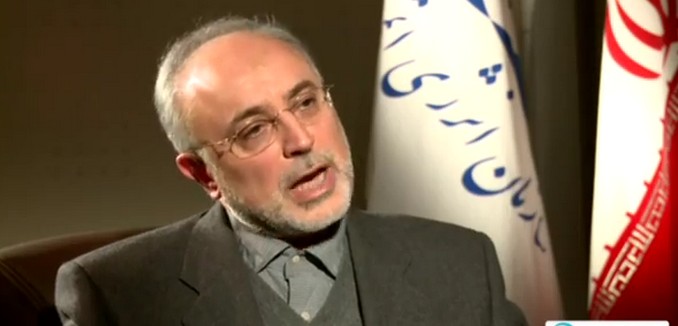Dr. Ali Akbar Salehi, the head of Iran’s Atomic Energy Organization, recently gave a speech to PressTV – the full transcript and video are here – in which he evaluated the effects of the recently implemented Joint Plan of Action (JPA) and the likely contours of a comprehensive nuclear agreement between the international community and the West.
The wide-ranging discussion included evaluations of Iran’s uranium program and its plutonium program. It came after a wave of other controversial interviews – with among President Hassan Rouhani, Mohammad Javad Zarif, and former top nuclear negotiator Hossein Mousavian – in which current and former top Iranian officials flatly ruled out dismantling parts of Iran’s uranium enrichment and plutonium production infrastructure. Whatever else might be said about Salehi’s comments, they were at a minimum on message:
If you look at the word ‘dismantle’ and you look at it in the dictionary, dismantle means to take apart and try to put it into pieces, equipment. Well, you can come and see whether our nuclear sites, nuclear equipment and nuclear facilities are dismantled or not. The only thing we have stopped and suspended – and that is voluntarily – is the production of 20 percent enriched uranium and that’s it.
Salehi went on to clarify – at some length – just how few constraints Iran considers itself bound by:
Of course, there is another thing that we have undertaken; we have committed ourselves not to install main equipment, which have been defined as to what those main equipments are in the Arak 40 megawatt heavy water reactor. The nuclear facilities are functioning; our enrichment is proceeding, it’s doing its work, it’s producing the 5 percent enriched uranium and those centrifuges that stopped producing the 20 percent will be producing 5 percent enriched uranium. In other words our production of 5 percent [uranium] will increase. The entire nuclear activity of Iran is going on. Centrifuges that were used for the production of 20 percent, they will be used now for producing 5 percent enriched uranium.
The boasts are likely to generate both specific and general questions for the Obama administration. White House and State Department officials seem to have settled on talking points emphasizing that “dismantlement of significant portions of [Iran’s] nuclear infrastructure” will be a topic for some time in the future, and that in the meantime journalists should focus on the JPA’s implementation.
Salehi’s statements, however, touch on substantive claims that may reignite specific criticisms of the White House’s negotiation strategy. At a hearing held yesterday in front of the Senate Foreign Relations Committee, David Albright, head of the U.S.-based Institute for Science and International Security (ISIS), identified Iran’s ability [PDF] to continue advancing its centrifuge program as a central “loophole” in the JPA.
The Obama administration has been pressed by lawmakers as recently as this week over wording in the JPA permitting Iran to continue researching and developing advanced centrifuges.
Centrifuge research had been a major sticking point in concluding negotiations over the JPA. Allowing Iran to continue improving its enrichment technology, the worry went, would allow the regime to make progress over the next six months that – should it decide to go nuclear after negotiations – would swamp whatever concessions had been made.
Salehi expressed himself very pleased with the final outcome on the issue:
In fact, the best part of this joint action plan is the research part. It’s so clear that R&D has no constraint. We are working on our advanced centrifuges. We have a number of advanced centrifuges, which are under the IAEA supervision where they are being tested and uranium gas has been injected into it – of course, not for accumulation, it’s just for testing those centrifuge.. And those centrifuges will have to be working together in a cascade for a while – for probably two years to make sure that those centrifuges that have been developed are performing well enough to then be able to produce them in mass production.
The result, according to Salehi, is that it would take Iran “a few hours” to reverse Iranian concessions made under the JPA. Similar timelines had been outlined before by top Iranian nuclear negotiators.
Salehi also ruled out basic concessions regarding the Iranian plutonium program and denied that the West had legitimate concerns over Iran’s atomic program, which has drawn at least half a dozen binding United Nations Security Council resolutions demanding that it be dismantled.
[Photo: PressTV]




